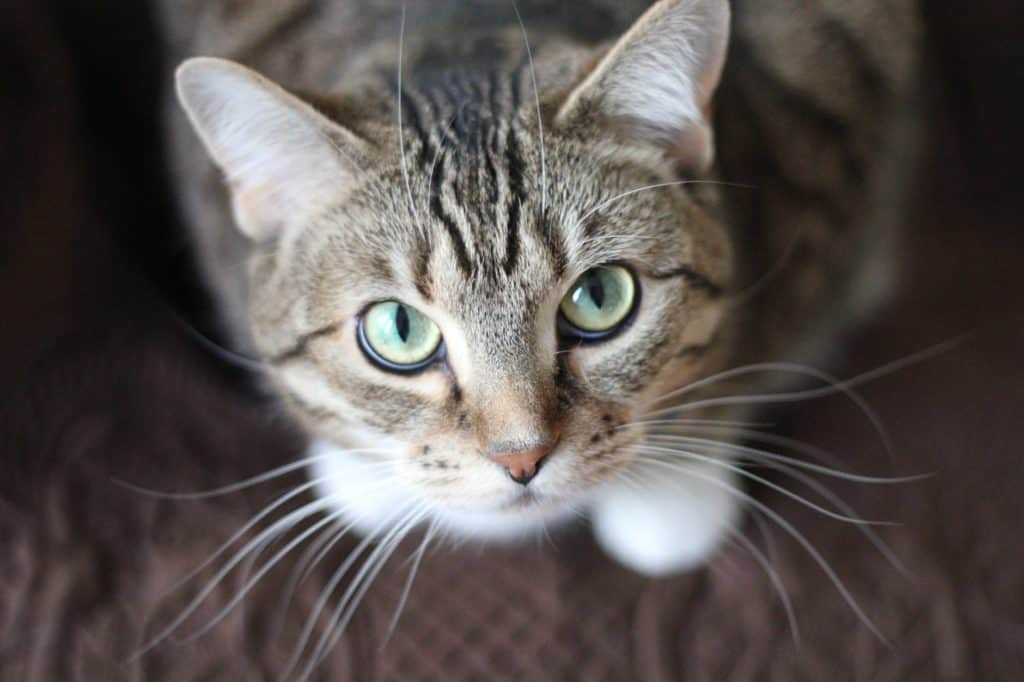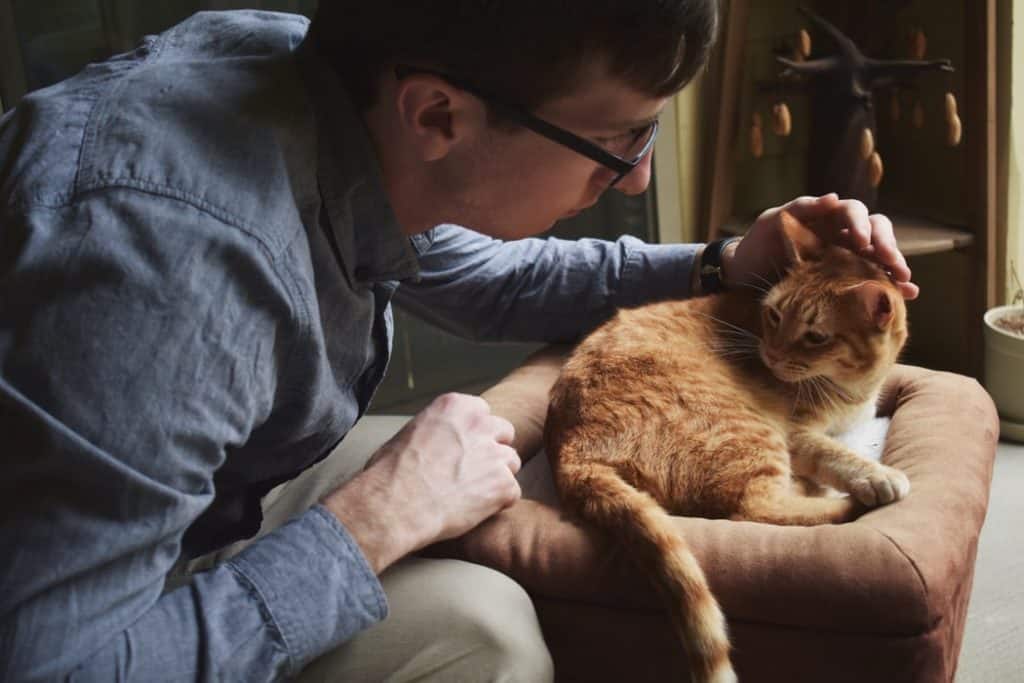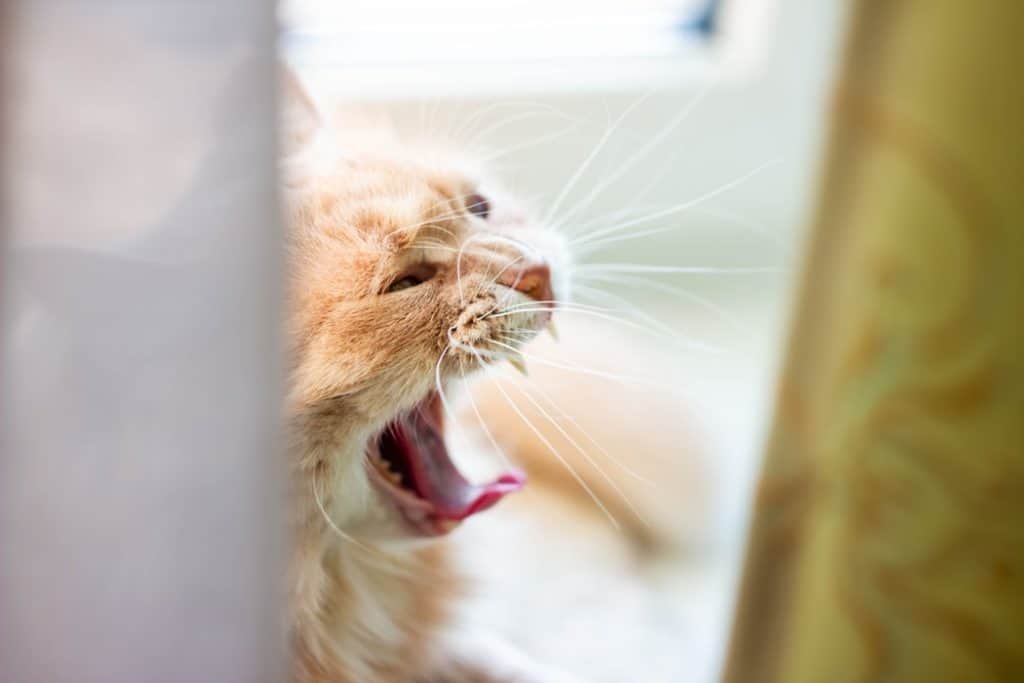Cat dental care is also an area not many cat parents know about. The lack of knowledge in this area has lead may cat parents to look for answers to several questions about their cat’s dental health. That’s why we’ve gathered the top 10 cat dental questions and answered them for you in this article.
Dental care is not only an issue for humans but for your cat as well. At a young age, cats are at risk of developing dental diseases like gum disease, oral cancer, or periodontal disease, among others. Since cats don’t show discomfort, it can be quite easy to ignore their dental needs.
Contents
- 1 Top 10 Cat Dental Questions
- 1.1 How Many Teeth do Cats Have?
- 1.2 When Do Cats Get Their Different Set Of Teeth?
- 1.3 How Do I Tell The Age Of My Cat Using Its Teeth?
- 1.4 Do Cats Get Cavities?
- 1.5 Do Cats Have Other Dental Issues?
- 1.6 What Are The Signs Of Gum Diseases In Cats?
- 1.7 When Should I Start Seeing The Vet for Dental Exams on my Cat?
- 1.8 How Do I Start Proper Dental Hygiene For My Cat?
- 1.9 How Often Is Cat Dental Cleaning Necessary?
- 1.10 Are Cat Teeth Cleaning Procedures Expensive?
- 2 Conclusion
Top 10 Cat Dental Questions
How Many Teeth do Cats Have?
Just like human beings, cats have both baby and adult teeth. They have 26 baby teeth and 30 adult teeth, which is less than what dogs and humans have. Apart from the teeth, cats also have two protruding upper canine teeth, which reflect their carnivore status. The primary purpose of these fangs is to aid in puncturing the prey’s skin

When Do Cats Get Their Different Set Of Teeth?
The growth of the different sets of teeth by your cat can help you know the age of your cat. The first set of teeth — baby teeth — begins to develop at three to four weeks after birth. Once the baby teeth start growing, the weaning process of the kitten also starts.
When the kitten gets to three or four months on average, they start losing their baby teeth. Just like human beings, the loss of their baby teeth ignites the growth of adult teeth. All of your cat’s adult teeth should have grown by the time your cat turns 6 or 7 months.
How Do I Tell The Age Of My Cat Using Its Teeth?
When a cat is young, it is quite easy for you to determine its age. Your kitten’s first incisors start to grow between two to four weeks. By the third or fourth week, the canines also appear, while the premolars start growing between the fourth to six weeks. By the eighth week, your kitten should have all its baby teeth.
By the fourth month, your kitten will start losing its baby teeth as the adult teeth begin to grow. By the time they get to six months, your cat should have all its adult teeth. Unlike kittens, determining the age of older cats can be hard to do by just looking at their teeth.
Do Cats Get Cavities?
No, cats don’t get cavities. However, your cat’s teeth can get holes that occur due to tooth resorption and not decay. These holes are Feline Resorptive Lesions. Tooth resorption happens when a cat’s baby tooth absorbs the structure of the adult tooth.
Just like human cavities, feline resorptive lesions are also painful. However, not all cat owners notice these holes, as they have a similar color to the cat’s tooth.
Do Cats Have Other Dental Issues?
Apart from feline resorptive lesions, cats also have other dental issues like:
- Gingivitis: a dental disease that causes your cat’s gums to swell and turn red. It’s also an early sign of periodontal disease. The reason why this disease occurs is that plaque build up on your cat’s teeth, and this ends up affecting the health of your furry friend’s teeth and gums.
- Periodontitis is a dental disease that causes inflammation in some or all teeth structure. The combination of plaque and saliva causes this condition to develop.
If left untreated, these dental diseases can cause severe damage to your cat’s teeth.

What Are The Signs Of Gum Diseases In Cats?
Some of the signs of gum disease in cats include:
- Drooling
- Bad breath
- Loss of appetite
- Facial swelling
- Difficulty chewing
- Missing teeth
These signs can tell you when your cat has an issue. Once you spot one or more of these signs, take your cat to see a feline dentist.
When Should I Start Seeing The Vet for Dental Exams on my Cat?
The right age for your cat to start going for dental exams is two years. Most cats experience dental problems at the age of 3. By visiting the vet early, you help in preventing the spread or development of dental conditions. As the saying goes, “Prevention is better than cure.”
This can also help you create a dental routine your cat can follow, as early as possible.
How Do I Start Proper Dental Hygiene For My Cat?
Dental hygiene in cats is just as crucial as your own dental hygiene. It should not be something you do once in a while but a daily ritual, as this will help protect your cat from dental diseases. Some of the things you can start doing to take care of their dental hygiene include:
- Scheduling regular dental exams
- Giving your cat food that also contributes to its dental health
- Regularly checking if your cat exhibits any signs of dental diseases
- Having a regular tooth cleaning routine
For those who can’t clean their furry friend’s teeth themselves, you can schedule a dental cleaning appointment to have their teeth examined and cleaned as well.
How Often Is Cat Dental Cleaning Necessary?
Even with a regular home dental cleaning routine, your cat still needs to have its teeth professionally cleaned every few months. Dental cleaning allows the vet to check if there are any dental problems they may have picked up in the last few months.
Therefore, make sure you schedule a feline dental cleaning after every few months, as this helps in further protecting your cat from developing dental issues.

Are Cat Teeth Cleaning Procedures Expensive?
Nothing is more expensive than watching your cat suffer through medical procedures and treatments. Poor dental hygiene not only leads to the development of dental diseases, but it can also affect your cat’s internal organs. This ends up threatening the life of your cat. With cat dental cleaning services, dental diseases no longer have to be an issue.
These services allow the vet to assess your cat’s teeth using several means. This, in turn, guarantees that your cat has no dental diseases.
Conclusion
Your cat’s dental health is just as important as its overall health. Therefore, make sure you visit a feline dentist to ensure your cat has healthy teeth at all times. Knowing the answer to some of the most common cat dental questions can help you take better care of your cat.
